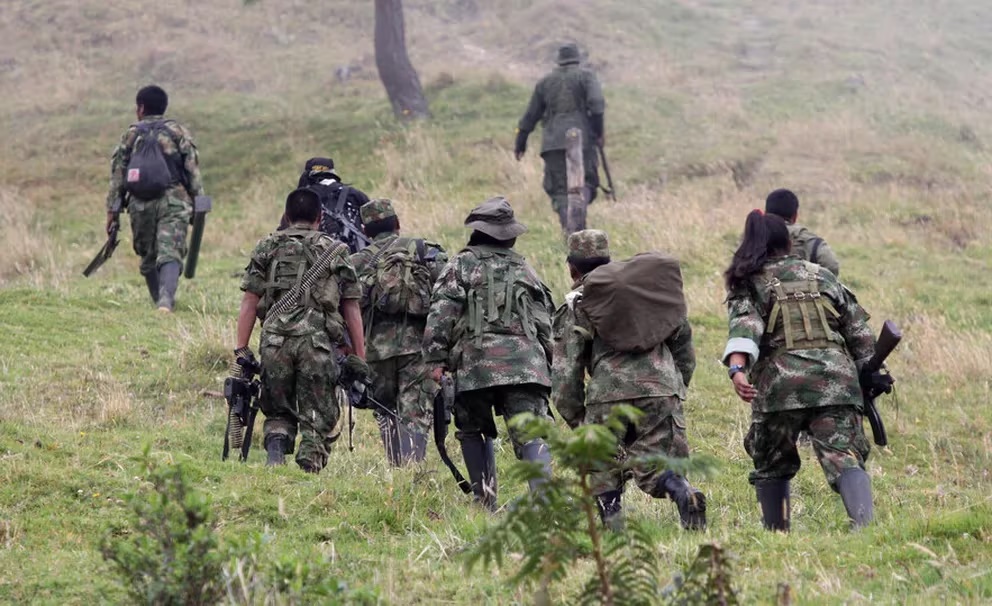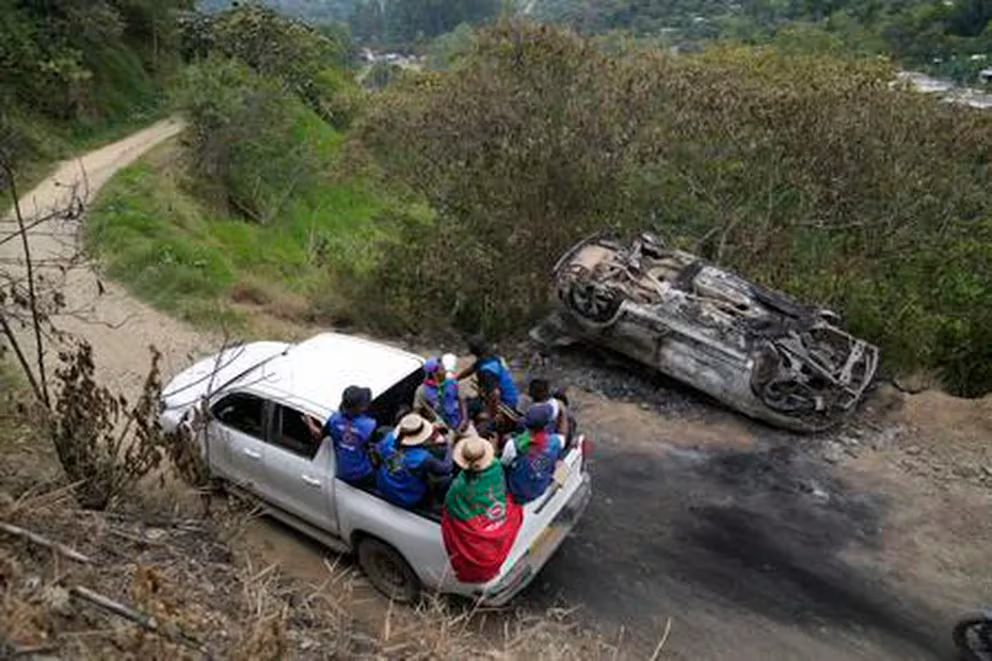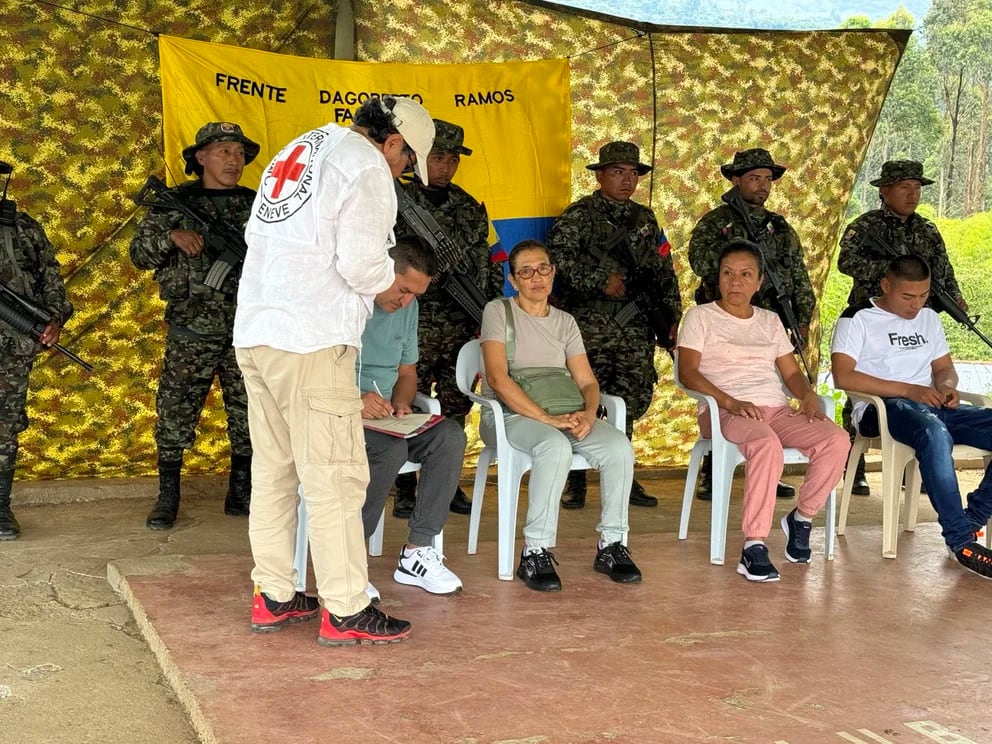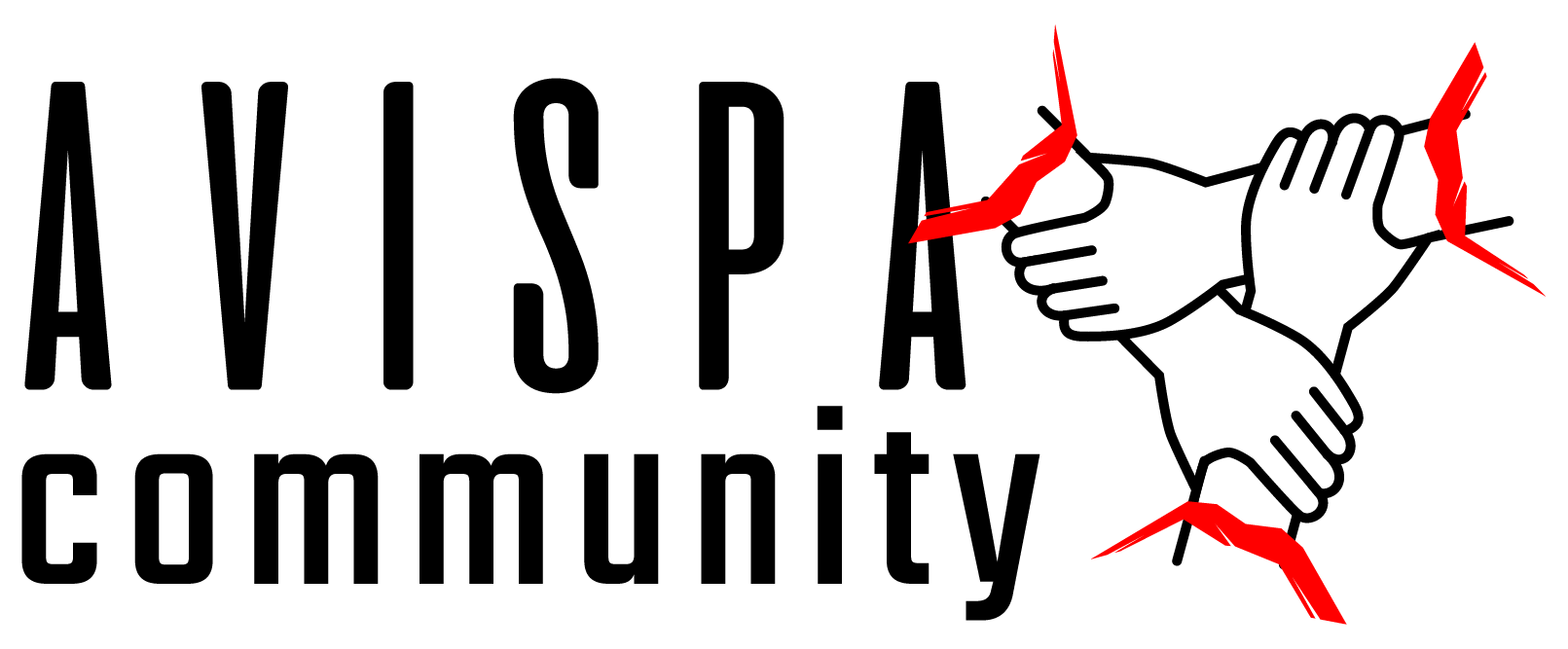Cover image: March of the Nasa people with the Indigenous Guard at the front
The department of Cauca, in southwest Colombia, is living through a humanitarian emergency due to the violent attacks on Indigenous peoples which have escalated in the region in the first months of 2024.
International human rights organizations have condemned the situation, calling on the Colombian state to act and guarantee the well-being of the people. The organizations argue that the attacks are violating the autonomy and collective rights of the Nasa people.
According to a statement, the communities remain on high alert, calling attention to the murder of community leader Carmelina Yule Paví, which took place in March and was denounced by the Asociación de Cabildos Indígenas del Norte del Cauca (ACIN). The Indigenous populations accuse armed groups, like the “Frente Dagoberto Ramos del Estado Mayor Central,” a group of dissidents of the now-extinct Fuerzas Armadas Revolucionarias de Colombia (FARC), of being responsible for the murder.
The organization Derechos de los Pueblos Indígenas Internacional (IPRI), detailed that the emergency situation is part of the context of armed violence that continues affecting Indigenous peoples following the signing of the peace accords in November 2016.
According to the report elaborated by the Observatorio de Derechos Humanos de la Organización Indígena de Colombia (ONIC), during 2023, more than 58,000 men and women belonging to the different Indigenous groups of Colombia were victims of harassment, confinement, and forced displacement. The report highlights that the greatest perpetrators of violence toward Indigenous peoples of Colombia were the Ejército de Liberación Nacional (ELN) with 42,700 victims; the public forces (Army, Navy, Air Force and National Police) with 6,551 victims, and dissidents of the FARC with 3,448 victims.

The actions of different armed groups in the department of Cauca have generated a humanitarian crisis, international organizations warn.
For its part, the Instituto de Estudios para el Desarrollo y la Paz (Indepaz) estimates that at least 37 Indigenous leaders were victims of violence in Colombia in 2023.
IPRI emphasizes in their report from 2022, Violencia, impunidad y criminalización contra pueblos indígenas de Colombia, that the actions of armed groups within Indigenous territories are characterized by “the assassination of Indigenous guards and authorities, the forced recruitment of Indigenous children and adolescents, and the forced confinement and displacement of Indigenous peoples from their territories.”
The human rights organization sustains that 90% of the cases remain in impunity, which opens the door for further attacks against Indigenous peoples. “The Indigenous peoples in Cauca—elders, children, and the territory itself—are not actors in the conflict, but victims of it. As such, they deserve special protection,” IPRI points out.
Escalation
The escalation of violence in April reached alarming levels with events like the kidnapping of Nasa community members of the Resgaurdo Indígena de San Andrés de Pisimbalá, according to a statement from the Consejo Regional Indígena del Cauca (CRIC).
In the face of the kidnapping of the community member Luis Ángel Liz, and the minor Estiven Quinto, the community of Pisimbalá mobilized. Through the Indigenous guard and members of the community, they were able to rescue the kidnapped. In their denunciation the CRIC emphasized that in the face of these events, “they will not allow any more disharmony in their territories.”

Cauca has converted into a territory in dispute between different armed groups. Photo: Fernando Vergara
The CRIC pointed out that the Dagoberto Ramos armed group is responsible for physical and psychological damage to community members. They urge the international community to speak out to stop the systematic violence against the people of Cauca.
In a letter of solidarity from Mexico, social organizations sustain that between January 1 and March 31, 2024, 26 assassinations have been registered in the region. In the letter, they also mention the murder of eight ancestral authorities which has taken place in the last two years.
In addition, they express concern regarding the forced recruitment by armed actors of children and adolescents younger than 18 years of age, the majority in the north of Cauca. “In 2022, there were at least 250 cases, in 2023 at least 153 cases, and in 2024, there has been 27 minors forcefully recruited,” they detailed.
The international organizations expressed their support for the decision taken by the Plan de Vida Proyecto Nasa (Toribio, Cauca), who were joined by the Cxhab Wala Kiwe-Asociación de Cabildos Indígenas del Norte del Cauca (ACIN) to control their territory. In so doing, they intend to administer justice themselves for those responsible for these grave violations, and “to decontaminate the territory of all publicity alluding to the armed organizations with the ultimate objective of defending life.”
Ceasefire Suspension
These violent actions take place in a context of an increase in clashes between armed groups and security forces in different zones of Cauca after a decree was signed in March by the Minister of Defense, Iván Velásquez, suspending the Bilateral, National, and Temporary Ceasefire (CFBTNT). This ceasefire had established a truce between the Colombian government and dissidents of the FARC in the departments of Nariño, Cauca, and the Valley of Cauca.
Already in September 2023, dissidents of the FARC assaulted the municipality of Jambaló, in the north of the department, where they robbed a bank and clashed with public security forces. Recently, on April 17 of this year, another group of dissidents of the FARC, known as “Carlos Patño,” attacked the police station of Jambaló where they assassinated a soldier. Just last Sunday, May 12, the Frente Dagoberto Ramos freed two prosecutors, a civilian, and a soldier who they had held detained since April 20.

Liberation of prosecutors and civilians by the group of dissidents of the FARC, Frente Dagoberto Ramos.
Furthermore, in early April, an ambush was reported in the middle of the Pan-American highway, resulting in the death of a police officer with seven others wounded. Days later, on April 12, a car bomb was detonated near the police station in the Municipality of Miranda. The explosion left four people injured, as well as destruction to several houses nearby, causing displacement for the fear of new confrontations.


